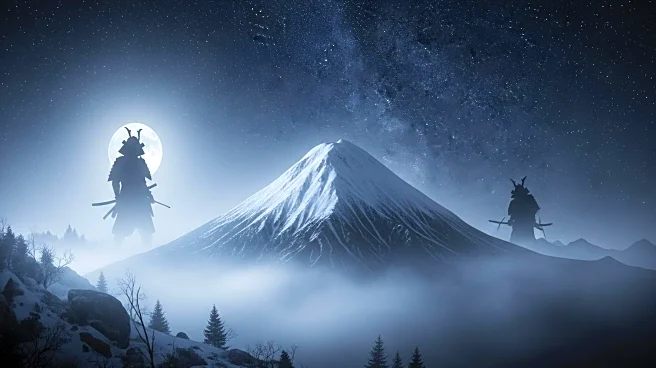What is the story about?
What's Happening?
Ghost of Yōtei, the standalone sequel to Ghost of Tsushima, is set to launch on October 2, 2025, exclusively for PS5. The game, developed by Sucker Punch, follows mercenary Atsu on a revenge quest against the 'Yōtei Six' in 1603 Hokkaidō. Reviews have been mixed, with Metacritic scores around 87 and OpenCritic scores between 88-89. Critics praise the game's art direction, writing, and combat flexibility, but note familiar open-world loops and pacing issues. The game introduces new 'cinema' modes and a free Legends co-op expansion is planned for 2026. Sucker Punch focused on polish and scale, keeping development costs around $60 million.
Why It's Important?
Ghost of Yōtei's reception highlights the challenges faced by sequels in balancing innovation with refinement. While the game is praised for its artistic and narrative elements, its reliance on established open-world mechanics may limit its appeal to those seeking groundbreaking experiences. The development approach, emphasizing polish over length, reflects a strategic shift in the industry towards more sustainable production models. This could influence future game development, encouraging studios to prioritize quality and artistic integrity over sheer scale. The game's success will be pivotal for PlayStation's lineup, potentially affecting its competitive standing in the console market.
What's Next?
As Ghost of Yōtei approaches its release, Sucker Punch and PlayStation will likely intensify marketing efforts to maximize launch impact. The game's performance will be closely monitored, with potential adjustments to post-launch content and expansions based on player feedback. The planned Legends co-op expansion in 2026 will offer additional engagement opportunities, potentially extending the game's lifecycle. Industry observers will be watching to see if the game can maintain momentum and achieve commercial success, influencing future development strategies for PlayStation exclusives.
Beyond the Headlines
The game's cultural representation has been a point of discussion, with Sucker Punch consulting Ainu cultural experts during development. This reflects broader industry efforts to address representation and authenticity in historical settings. The controversy surrounding a senior artist's dismissal over a social media joke highlights the sensitivity of public relations in the gaming industry. These elements underscore the complex interplay between creative expression, cultural sensitivity, and corporate responsibility in modern game development.















